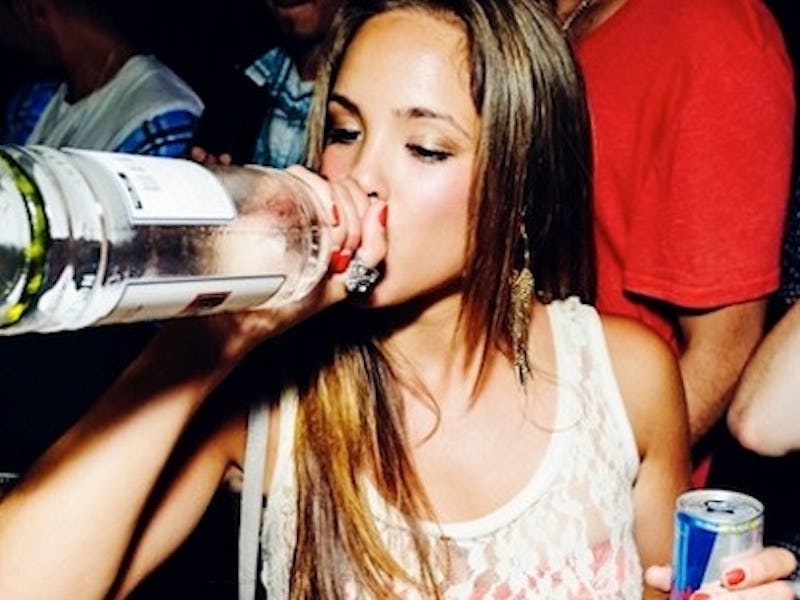Link Between Teen Binge Drinking and Memory Issues Explained in New Study
There's a reason they're so forgetful.

America’s adults consume billions of drinks every year, and its teenagers aren’t too far behind: 11 percent of all alcohol in the United States is guzzled down by people ages 12 through 20, and while teens may drink less often than adults, they drink more when they do. The fact that 90 percent of teenage drinking is binge drinking, a new study in the Journal of Neuroscience suggests, spells bad news for their memories as they enter adulthood.
In the paper, Columbia University scientists show that a brain on booze contains less active neurons, which impairs memory retention — especially if that brain belongs to a teenager. Binge drinking, they show in their study on mice, alters neurons within the brain’s prefrontal cortex, which help the brain retain working and short-term memories and regulate how well a brain can pay attention.
“These findings may help explain why human adolescent binge drinkers have memory problems,” explains study co-author and Columbia University assistant professor of anesthesiology Michael Salling, Ph.D.. “But they also suggest that there are ways to intervene.”
Binge drinking is five or more drinks a night for boys and four or more for girls.
Part of the reason that the memory-linked parts of teenage brains are so vulnerable to alcohol is because the prefrontal cortex doesn’t completely mature until people are in their twenties. Because binge drinking dampens neuron excitability — that’s their ability to relay signals between cells — it hampers their chance to develop.
Salling and his co-authors explored the effect of binge drinking on neurons using hard-drinking mice who were given a near-endless supply of booze. The majority of alcohol studies force mice to become intoxicated through vapor inhalation or alcohol injection but, as co-author and Columbia University professor Neil Harrison, Ph.D. and all hard-partying college kids point out, those models “don’t resemble how drinking develops in humans.”
Some of the “teenage” mice that were given access to booze every other day drank just a few sips, whereas others were zealous consumers — just like humans. Those were already avid drinkers subsequently consumed more as they aged, sometimes diving in as soon as the alcohol was provided. This binge-like behavior, the scientists note, is called “front-loading behavior” in humans.
Mice can become addicted to alcohol, too.
Dissection of the brains of the binge-drinking mice showed that the prefrontal cortex neurons had become less active, suggesting to the scientists that teenage human binge-drinking likely also results in “working memory deficits in young adulthood.” The fact that these mice also craved more alcohol as they aged, the researchers point out, also may explain why teenagers who binge drink are 15 times more likely to become adult alcoholics.
It’s been established that binge drinking can lead to alcohol-induced fatalities and result in a lower life expectancy. In order to help people quit drinking before it’s too late, the scientists behind this study are continuing to study these vulnerable neurons and the channels they operate in the brain, in case targeting them can lead to a binge drinking cure.